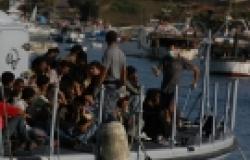Europe’s Migration Predicament - Outlook: An Insecure Perspective

This is the last of a four-part series of posts on Poland’s, Hungary’s and the Czech Republic’s perilous play with the EU’s refugee relocation agreement.
On July 26, 2017, a general advocate of the Court of Justice of the European Union issued a first formal opinion on the Slovak and Hungarian lawsuit. While the opinion is not binding for the final decision of the court, it unveiled, at least to some extent, in which direction the Court could lean. The opinion recommends that the European Court should dismiss the lawsuit initiated by Slovakia and Hungary against the mechanism of the mandatory relocation of asylum seekers and reject all the procedural and formal points brought up by Slovakia and Hungary. Moreover, the general advocate said that “the mechanism is actually a proportionate means of enabling Greece and Italy to deal with the impact of the 2015 migration crisis”. Even though this is not good news for the defiant countries, in particular since both governments of Slovakia and Hungary said clearly that they would accept the ruling, it does not mean automatically they will be willing would to accept the migrant and refugee quota assigned to them, as the issue has become highly politicized in the domestic politics and would go against the anti-migrant sentiments in the respective societies.
Hence, as the issue is bound to remain conflict-ridden with potentially risky consequences for the EU as a whole. First of all, the question is in how far the infringement procedure will be effective against the V4 countries and how the final European Court decision on the Slovak and Hungarian lawsuit will affect it. Should the Court of Justice of the European Union decide in favor of the EU decision on relocation and against the Slovak and Hungarian governments, the key arguments of the V4 about the illegality of the resettlement decision and procedural violations will be debunked. This will certainly increase pressure by the EU and make EU sanctions against the defiant V4 more likely.
On the other hand, there are numerous voices stressing that any sanctions or penalties would backfire and cause more problems for the EU than offer solutions. For instance, an attempt by the EU to punish a member state in 2000 ended in chaos when diplomatic quasi-sanctions were enforced against Austria after the country’s conservative party decided to form a coalition government with the rightist Freedom Party (FPÖ). However, the measures were quickly dropped after they encouraged anti-EU sentiment in Austria and other EU countries. The right-wing nationalist governments of the Central Eastern European countries and the populist president in the Czech Republic can rely on strong anti-immigration sentiments in their societies. This means that sanctions following the infringement procedure are likely to produce a popular backlash against the EU. This becomes the more probable, the louder and the more often the EU threatens to cut funds to the disobedient Eastern member states because of their anti-migration policies. Should this come up during the next European Union joint budget negotiations in 2020, the EU risks the next crisis over a blocked budget and a further reaction against the EU in Europe. Some experts argue that the publics in Central Eastern Europe might classify any sanctions—or even a talk about sanctions—as an attack on their country’s sovereignty and as a proof of an alleged oppressive nature of the EU. This issue thus could add to the already present Euroscepticism in the Central Eastern member states. Consequently, even with a positive European Court decision, the EU will still be between a rock and a hard place vis-à-vis the defiant V4 countries.
Ireneusz Pawel Karolewski, Dr., is Chair of Political Science at the Willy Brandt Centre for European Studies of the University of Wroclaw, and Associate Professor of Political Science at the University of Potsdam. Author of “European Identity Revisited: New approaches and recent empirical evidence” (Routledge 2016). Contact: karole@uni-potsdam.de. Roland Benedikter (corresponding author), Dr. Dr. Dr., is Research Professor of Political Analysis in residence at the Willy Brandt Centre for European Studies of the University of Wroclaw, and Global Futures Scholar at Eurac Research Bolzano-Bozen, Autonomous Province of South Tyrol, Italy. Contact: rolandbenedikter@yahoo.de.
Part 3 is available here.
Phtoto Credit: Noborder Network via Flickr (CC BY 2.0)

